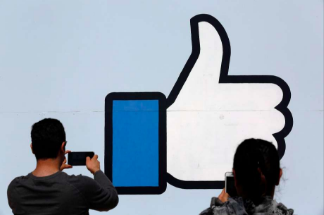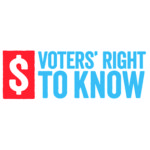By Joe Garofoli
Politicians love having a villain to target — it’s an easy way to score points. But only when it serves their purposes.
Today’s villain: Facebook.
The advantage to politicians in flogging Facebook: By ranting about how the social media platform violated the privacy of potentially 50 million users through the Cambridge Analytica scandal, it shows that they are sticking up for their constituents and keeping powerful corporate institutions under control.
But when it comes to Facebook, the villain is also the politician’s best friend.
So while some elected leaders are encouraging the Federal Trade Commission to demand that Facebook pay damages to users whose privacy was violated, none is ditching it when it comes to their own campaigns. There’s no rush to pull down their Facebook campaign websites to protest the company’s sloppy oversight of the personal information of millions of voters. Deleting the Facebook app? That’s for activists and certain billionaires who can live without it.
Politicians feel they can’t cut ties with Facebook for a simple, practical reason — it’s too big to quit.
“Facebook is so integrated into campaigns,” said Kate Maeder, a Democratic strategist who runs state and local campaigns in California. “Do you need FB to win? No. But this is the new frontier of modern campaigning.”
Republican gubernatorial candidate Travis Allen has far less money in his campaign bank account than his opponents. Instead, he routinely brags on the campaign trail about the breadth of his campaign’s social media reach. The three-term assemblyman from Huntington Beach (Orange County) calls Facebook “a great equalizer in today’s media” and “a great democratizer.”
“No longer are public leaders constrained by the traditional media. Now, with social media, I can talk directly to the voters of California with no filter,” Allen said in an interview this week after an appearance at the University of San Francisco.
While Allen may have concerns about privacy breaches, he has no intention of getting off Facebook. The reason is that he can’t find another social media platform that performs all the campaign functions Facebook does.
“It speaks to the monopolistic nature of the current social media environment. There are only so many options to use,” Allen said. “New platforms are springing up, but they’re not seeing the same sort of widespread acceptance that Facebook does.”
Others find Facebook virtually indispensable. On a basic, public level, Facebook serves as an online bulletin board for campaign events and a way for supporters — and potential supporters — to weigh in on issues. It helps campaigns recruit volunteers and get voters to the polls on election day.
More important to campaigns: Facebook helps them stitch together thousands of tiny pieces of personal data to help them find future supporters and donors. Just ask Sen. Bernie Sanders, I-Vt., whose campaign’s masterful use of social media transformed a little known septuagenarian politician from a small state into a national force.
“We would do a posting and get a ton of reach and engagement,” said Hector Sigala, who was the director of social media for Sanders’ 2016 presidential campaign. “And that was important to us, because the corporate media wasn’t covering our campaign.”
So while billionaire Elon Musk deleted the official Facebook pages for his SpaceX and Tesla companies, don’t look for a stampede of politicians to follow.
“I think it would be really difficult for a politician to run without Facebook — they’d be at inherent disadvantage,” said Jillian C. York, the director for International Freedom of Expression for the Electronic Frontier Foundation, who has written about leaving Facebook.
“The whole trouble with leaving Facebook is that it doesn’t make much of a difference if you’re the only one to do it, whether it’s me we’re talking about or a politician,” York said in an email interview. “So, if one ethical politician decides to go but the others stay, the ethical one is probably going to lose.”
Plus, York added, the current situation “says a lot about the media ecosystem as well. In recent history, at least, it was television and newspapers that allowed politicians to reach their constituents—and television, at least, is better governed than Facebook in regards to political advertisements.”
But some people are trying to make sure that those same standards that apply to TV and print ads apply to digital media as well.
Los Gatos resident Ann Ravel, the former chairwoman of the Federal Election Commission, is working on a project to enshrine some of those standards into what she calls the “Voters Right to Know.”
It is designed to be a state constitutional amendment that would increase transparency on technology platforms, no matter what they look like in the future. Enshrining those requirements in a state constitutional amendment would make them more durable, she said. Winning voter approval for those standards state-by-state might be politically easier than going through Congress or federal regulators.
“What the public needs on social media is no different than what the public needs in other media,” Ravel said. “They need to know who is behind these campaign ads they see all the time.”
For now, though, few political insiders expect candidates to leave Facebook. It’s more likely that their audience might ditch the platform before they do.
“I think Facebook is losing its influence,” Maeder said. Millennials “are abandoning Facebook for Instagram (which is owned by Facebook) and Snapchat. They see Facebook as something their parents use. With campaigns, tools come and go. Facebook might not be as powerful in a decade.
Joe Garofoli is The San Francisco Chronicle’s senior political writer. You can contact him here: Email: jgarofoli@sfchronicle.com Twitter: @joegarofoli
A link to the article can be found here.




